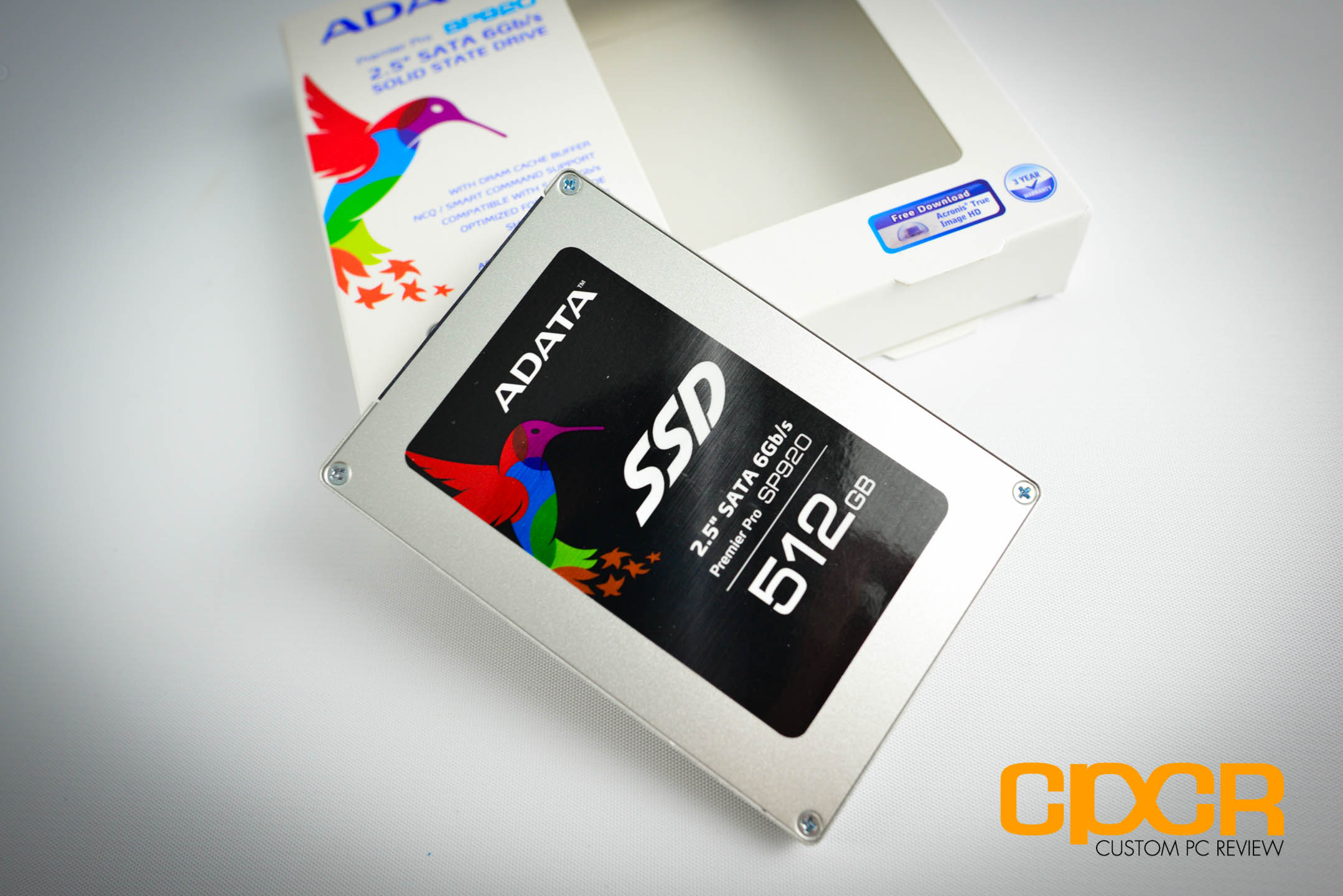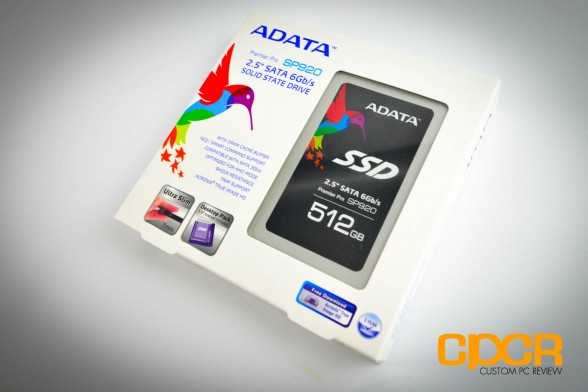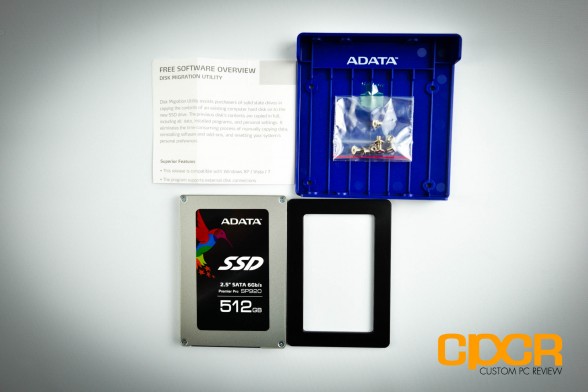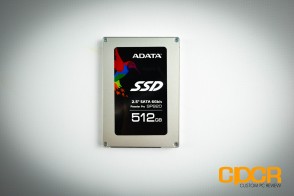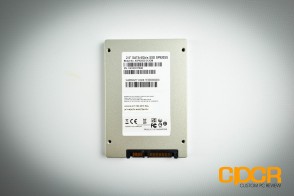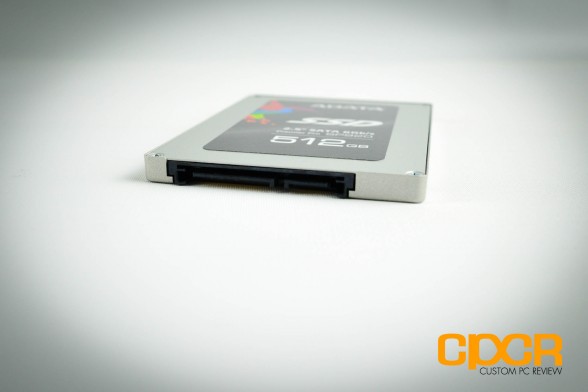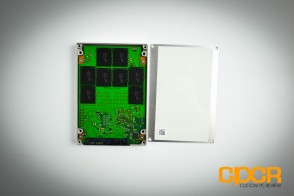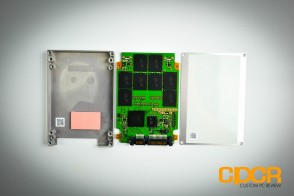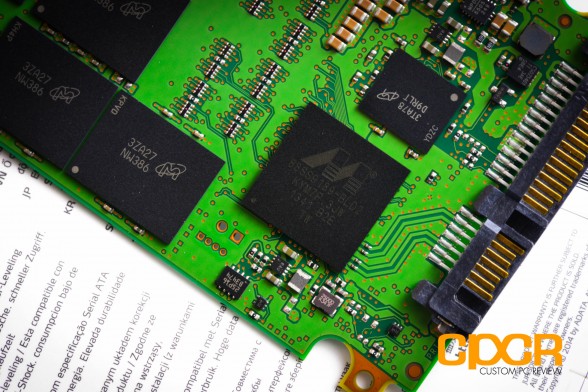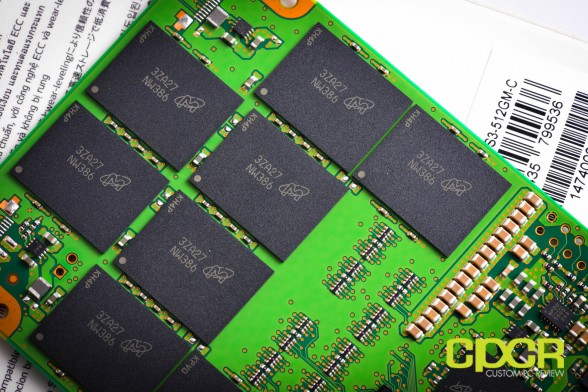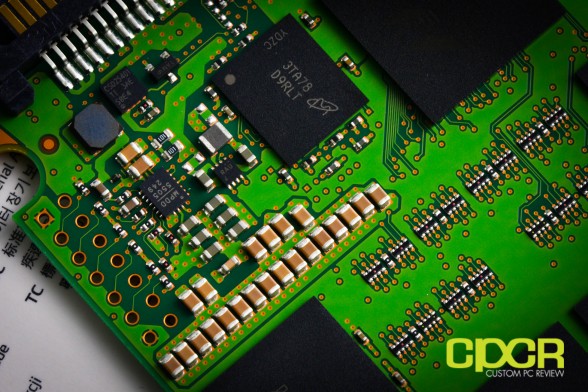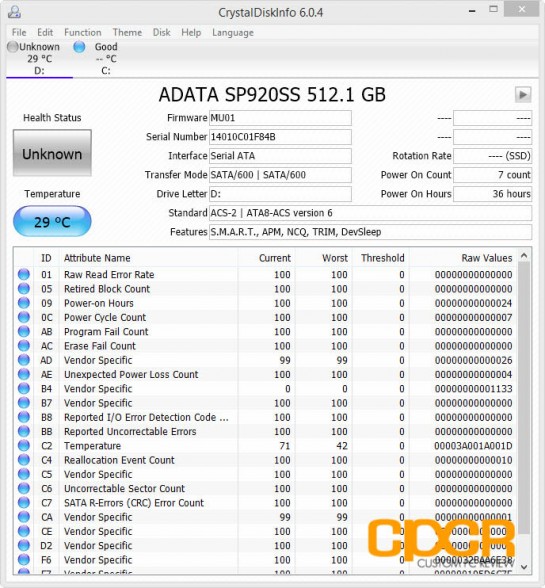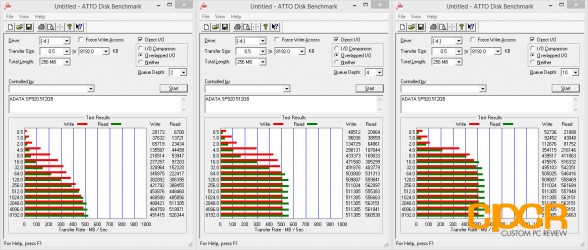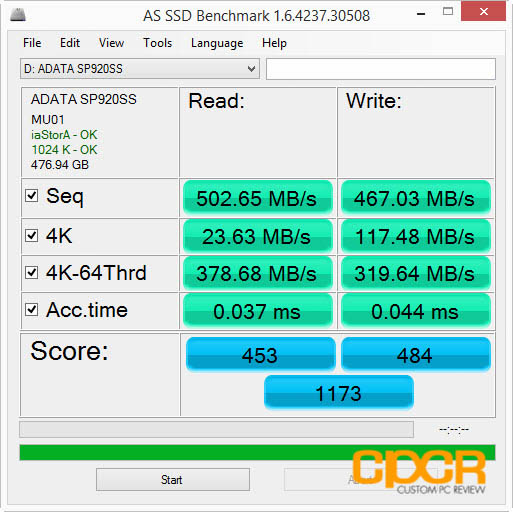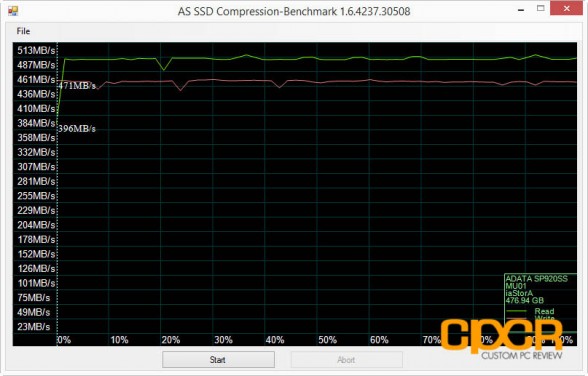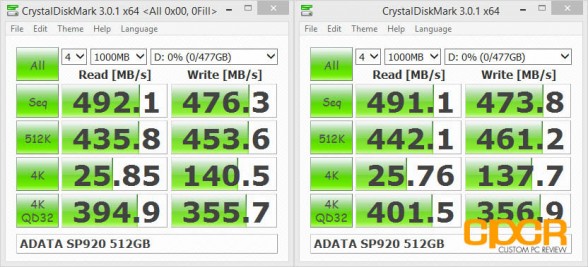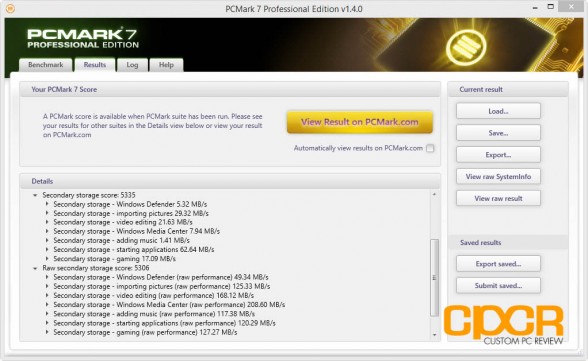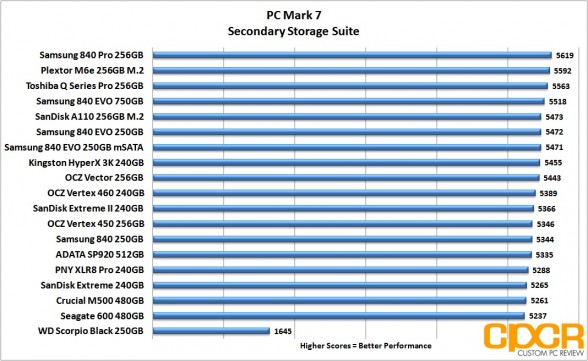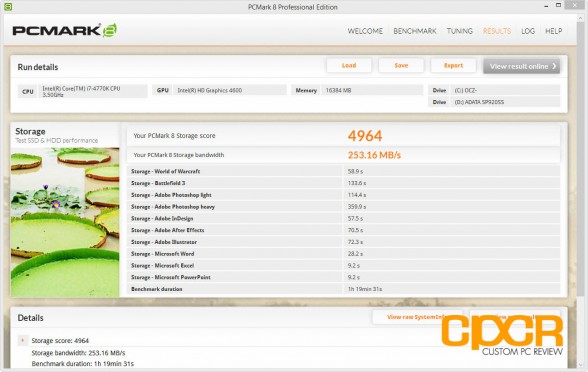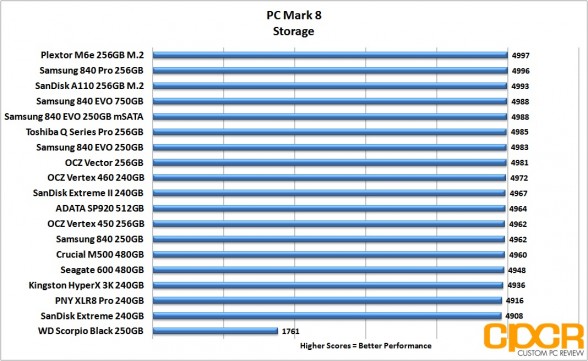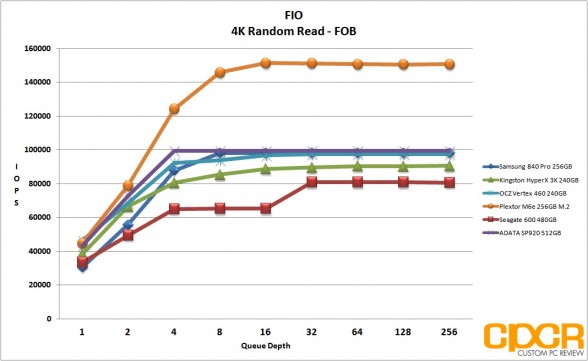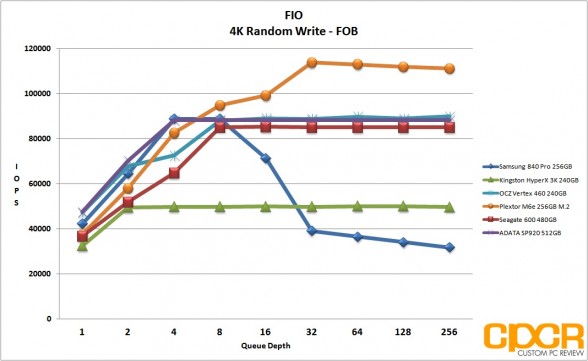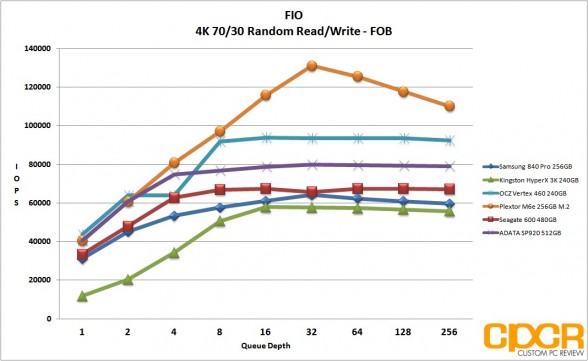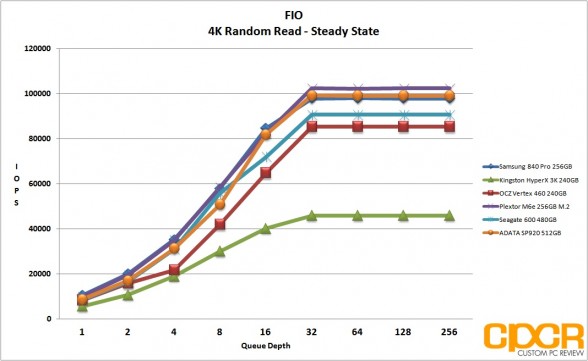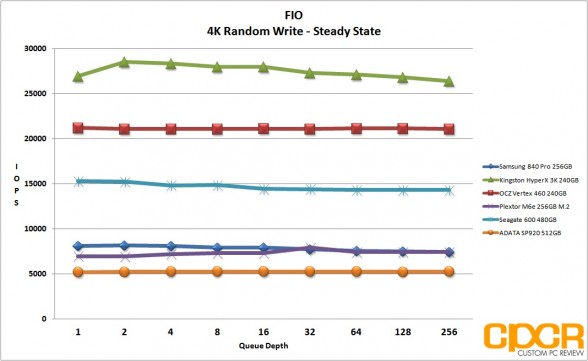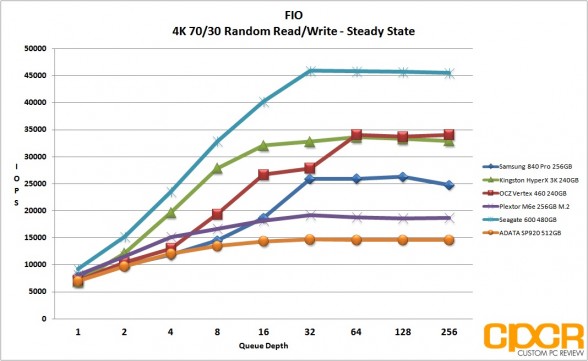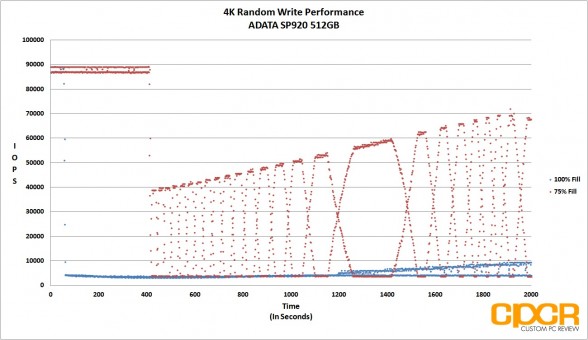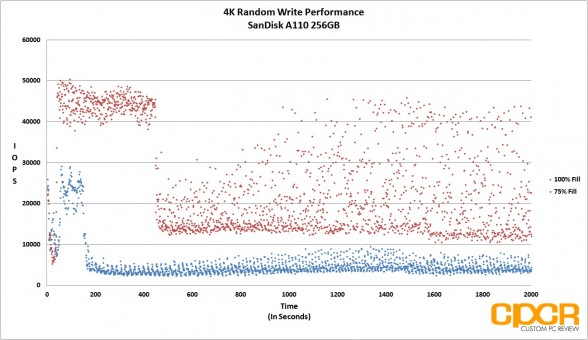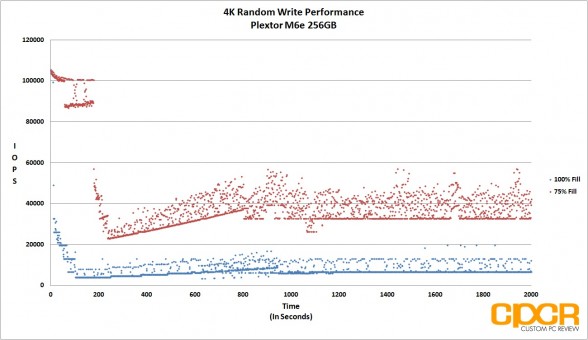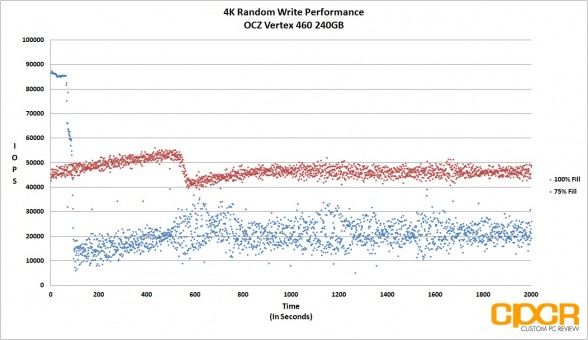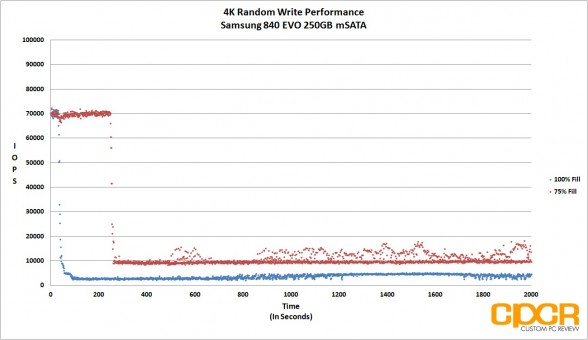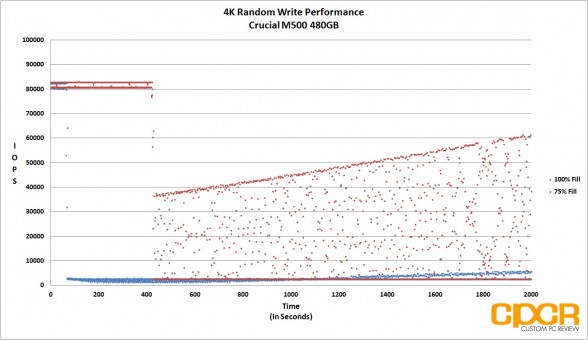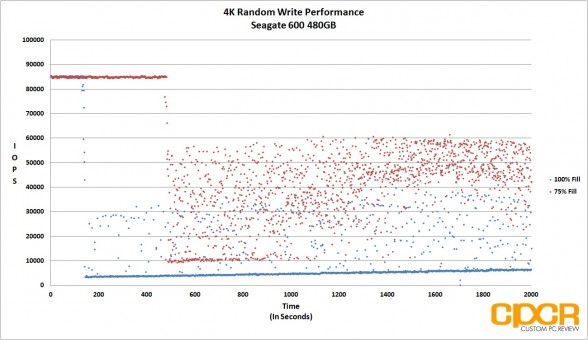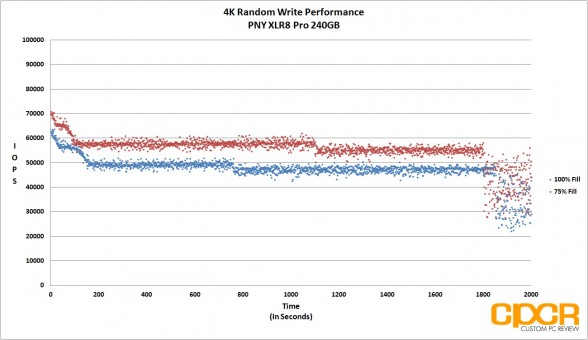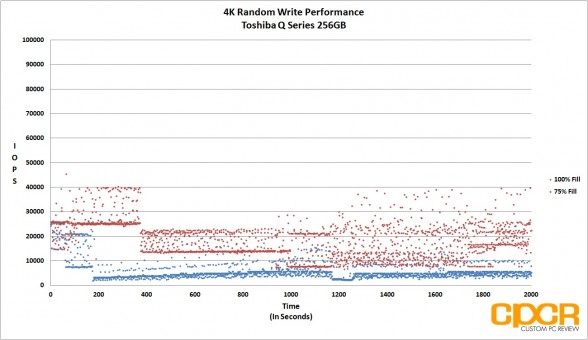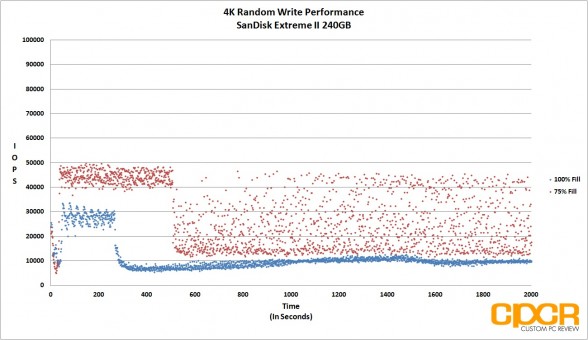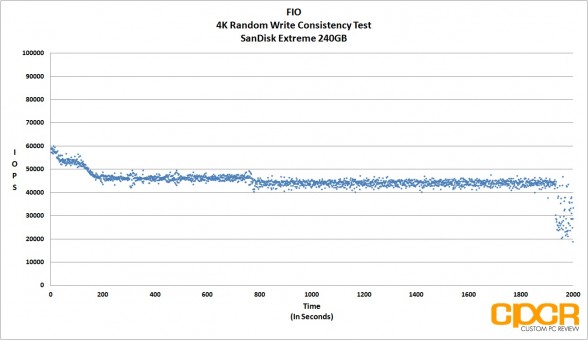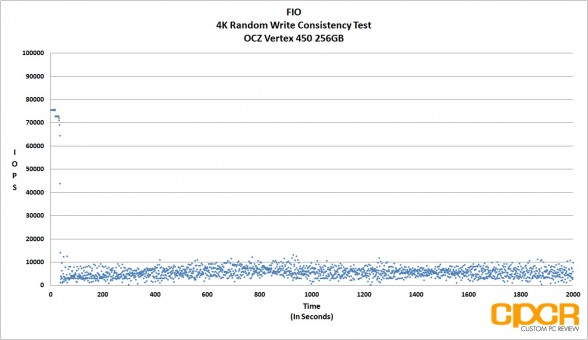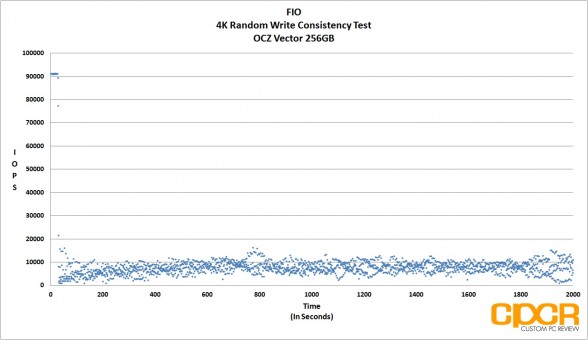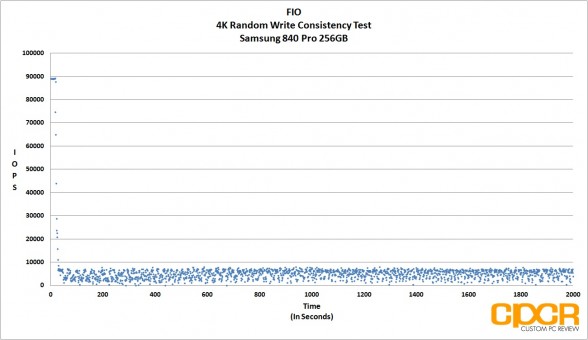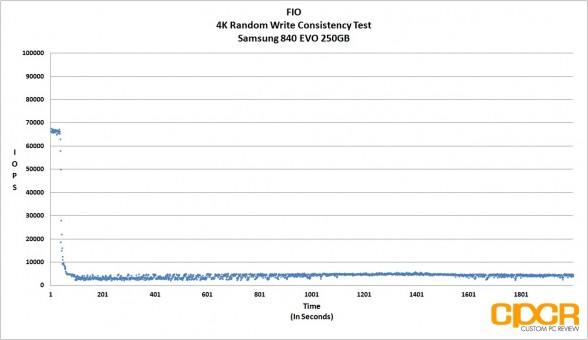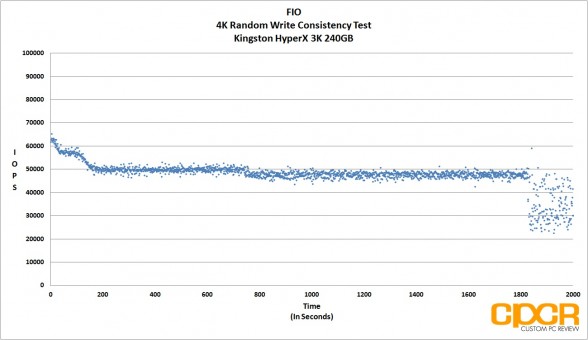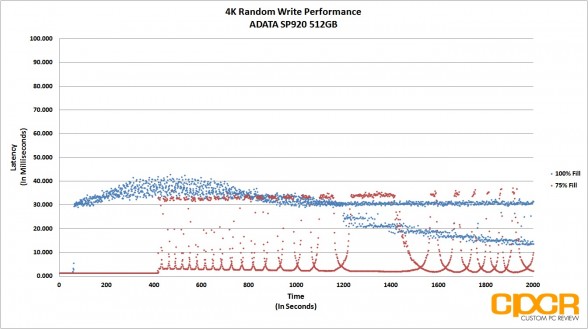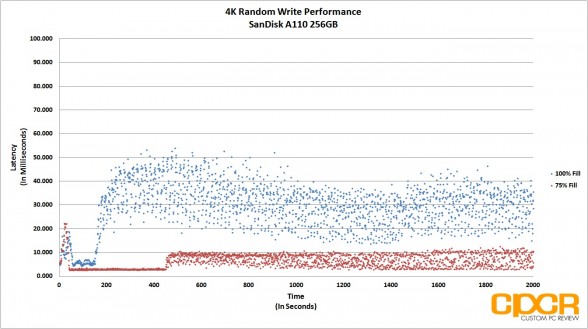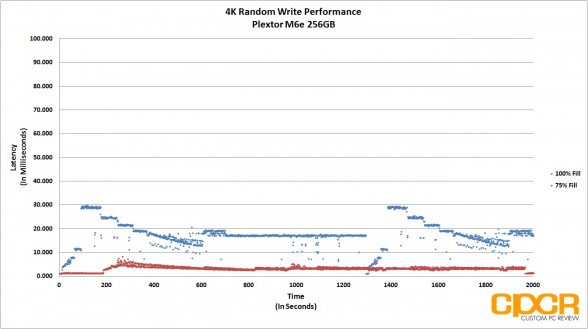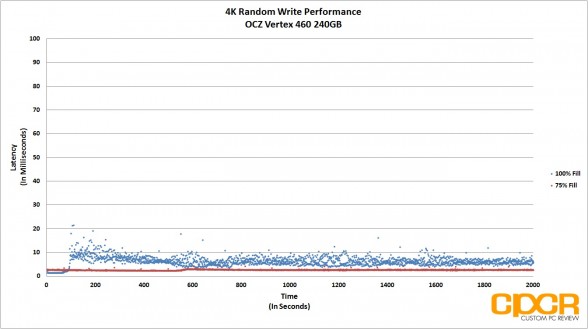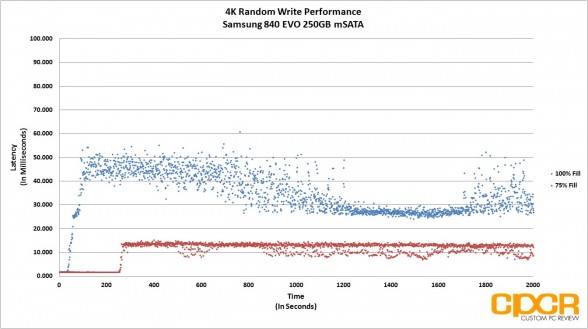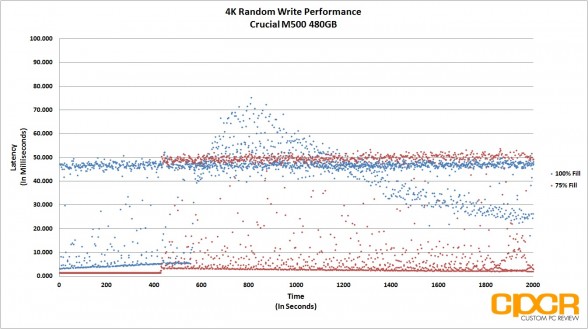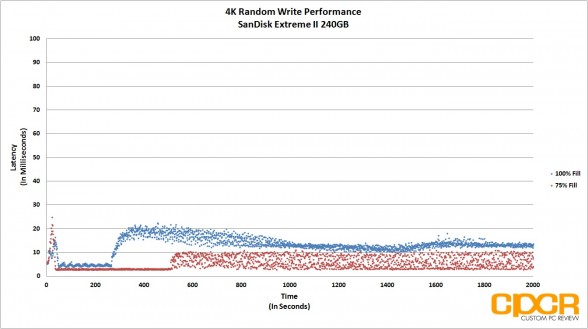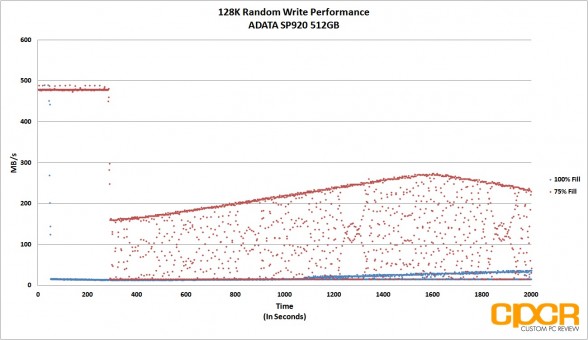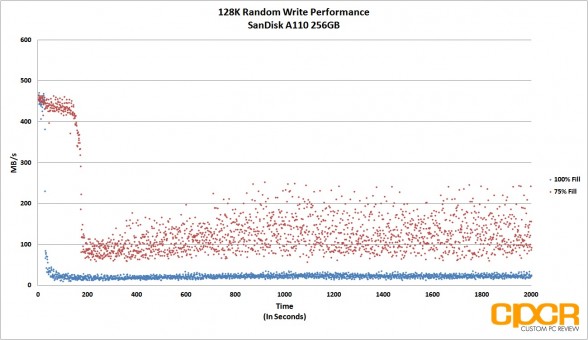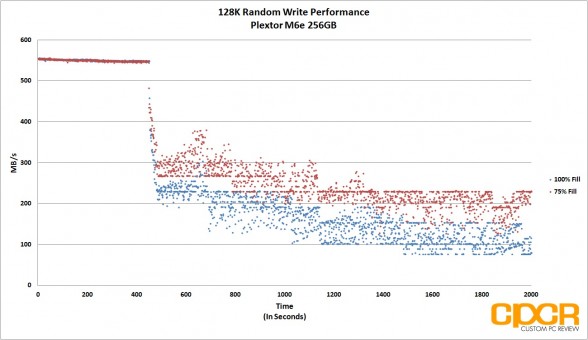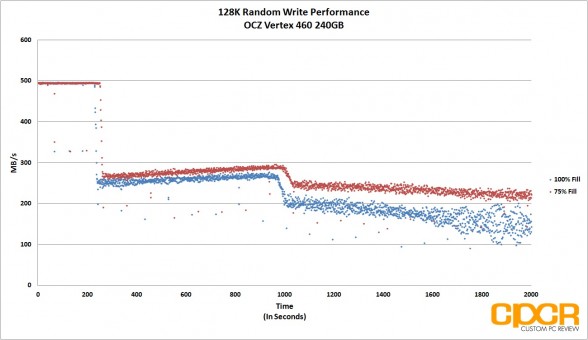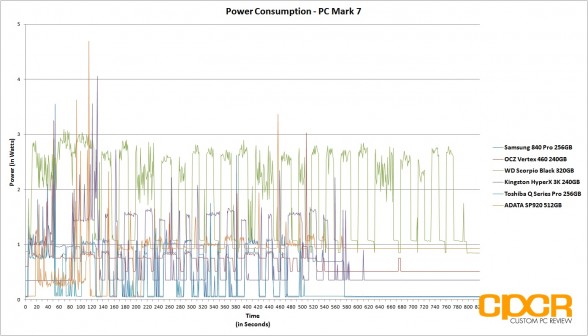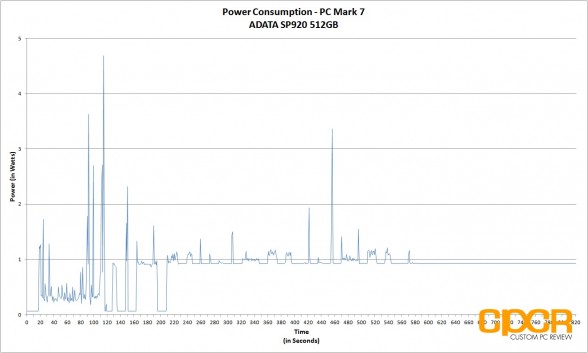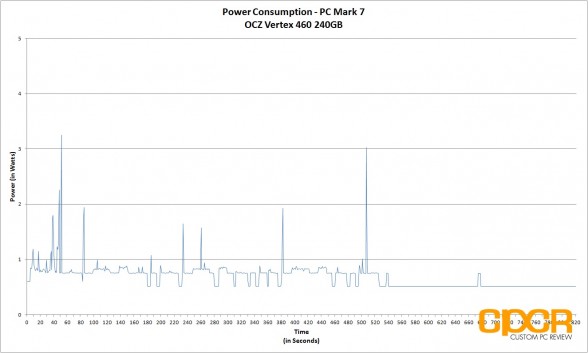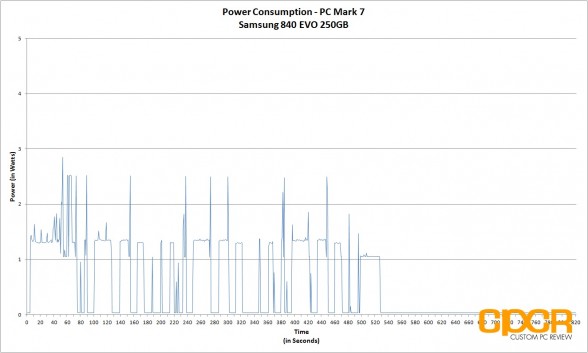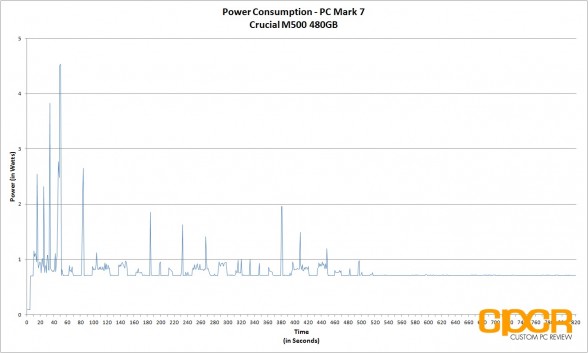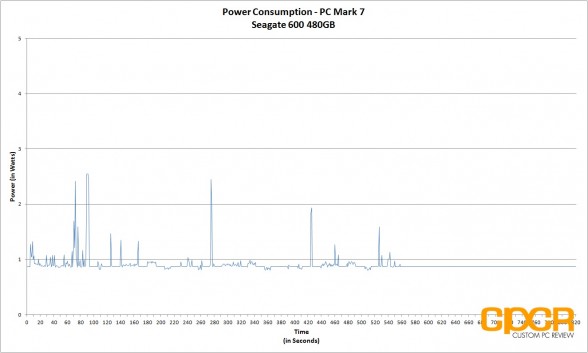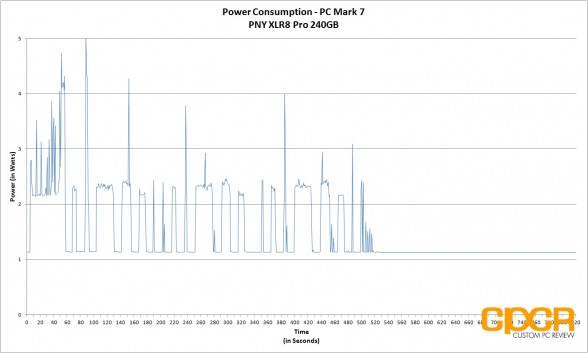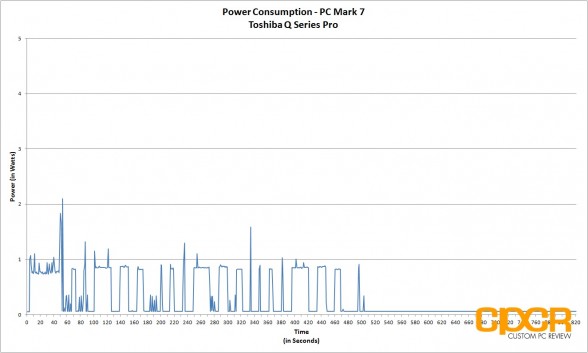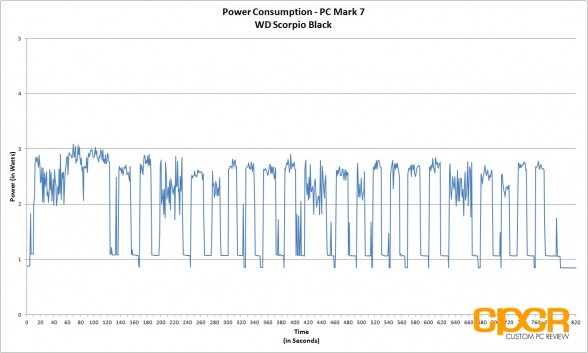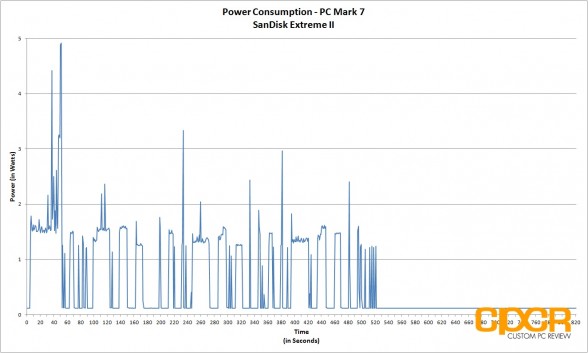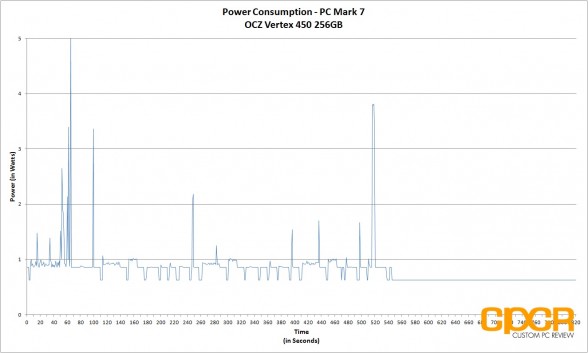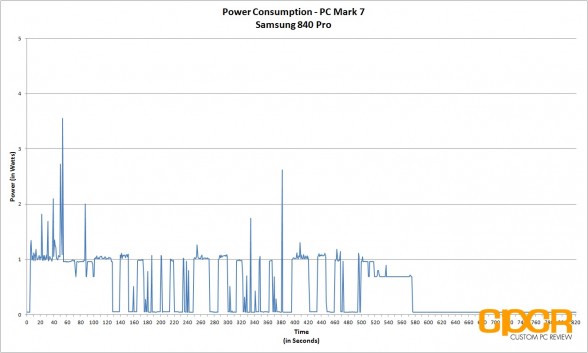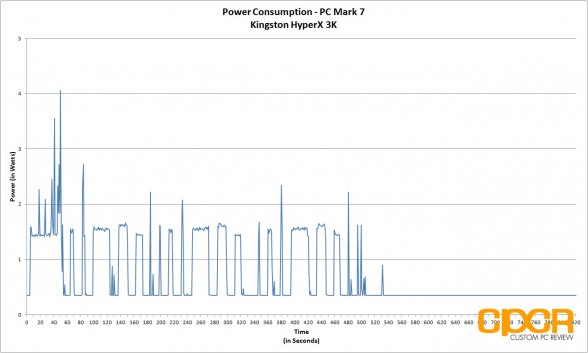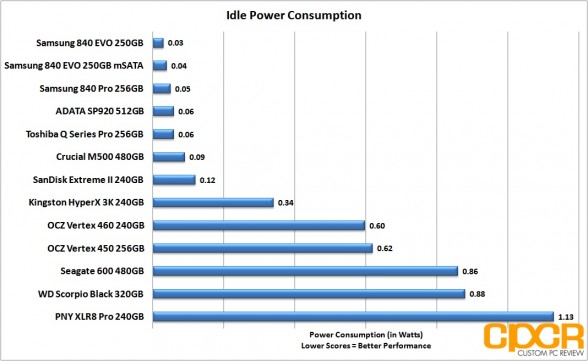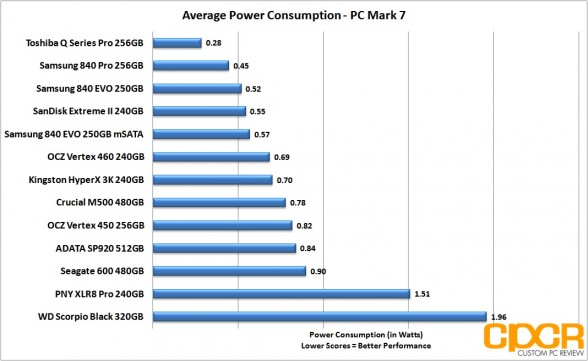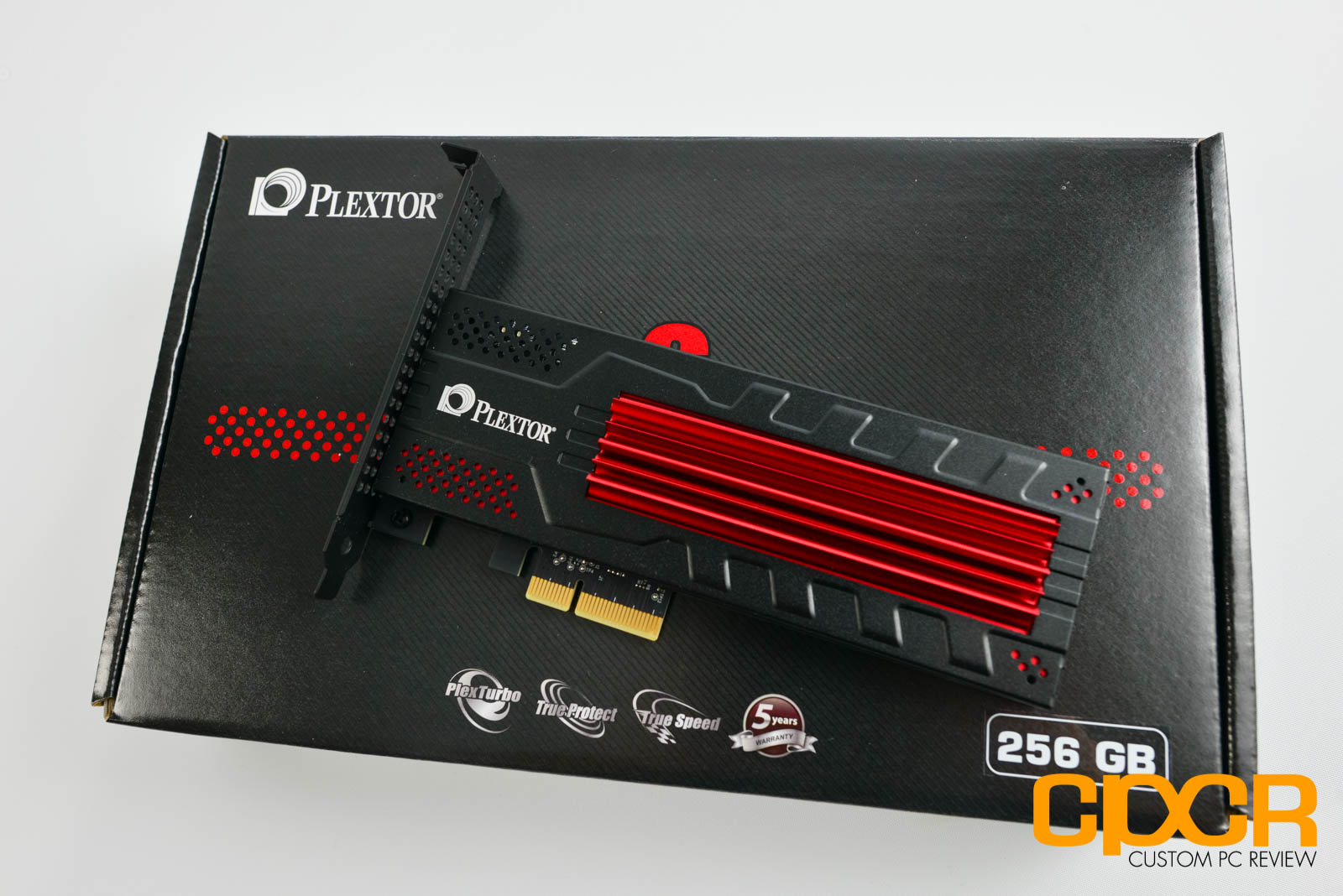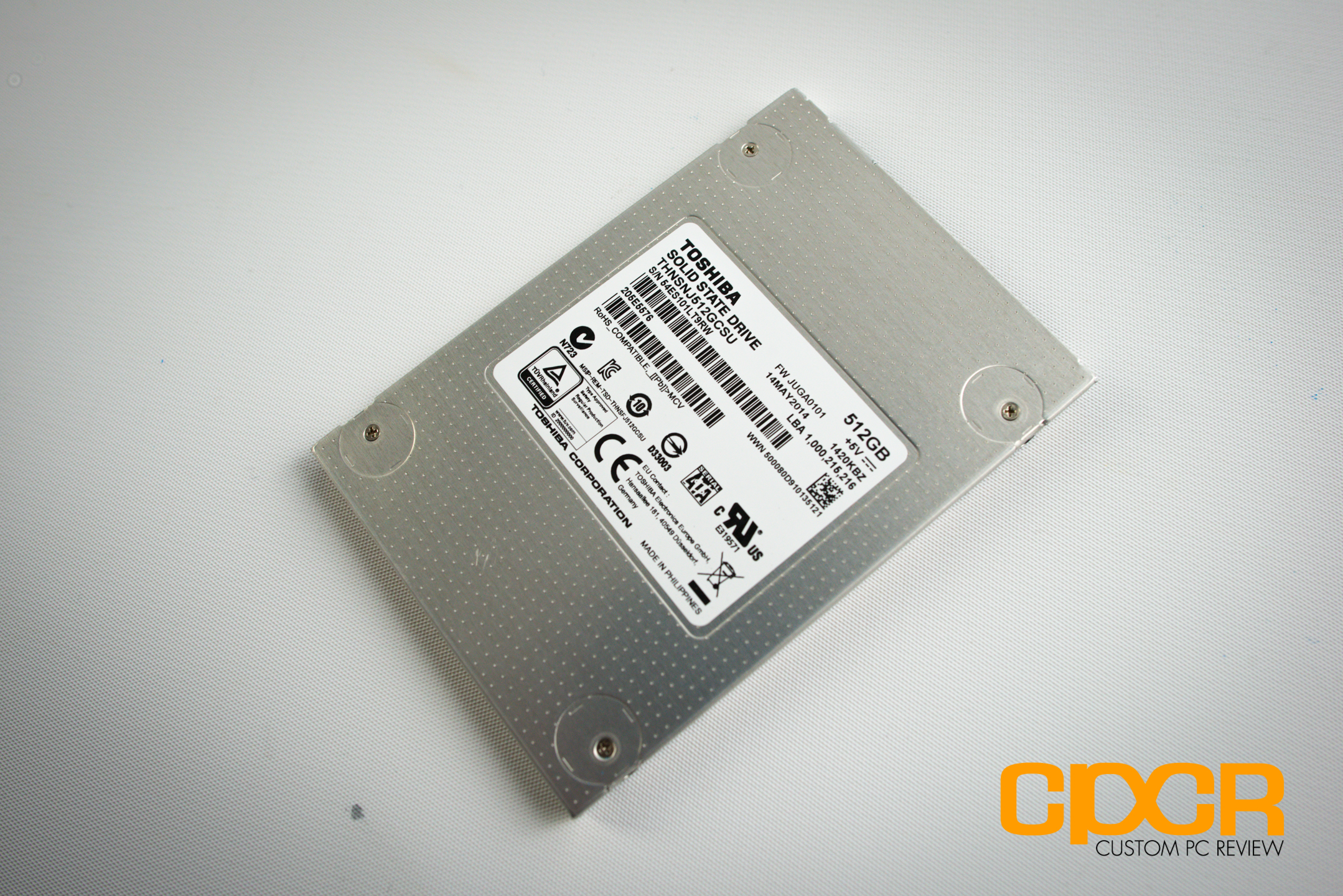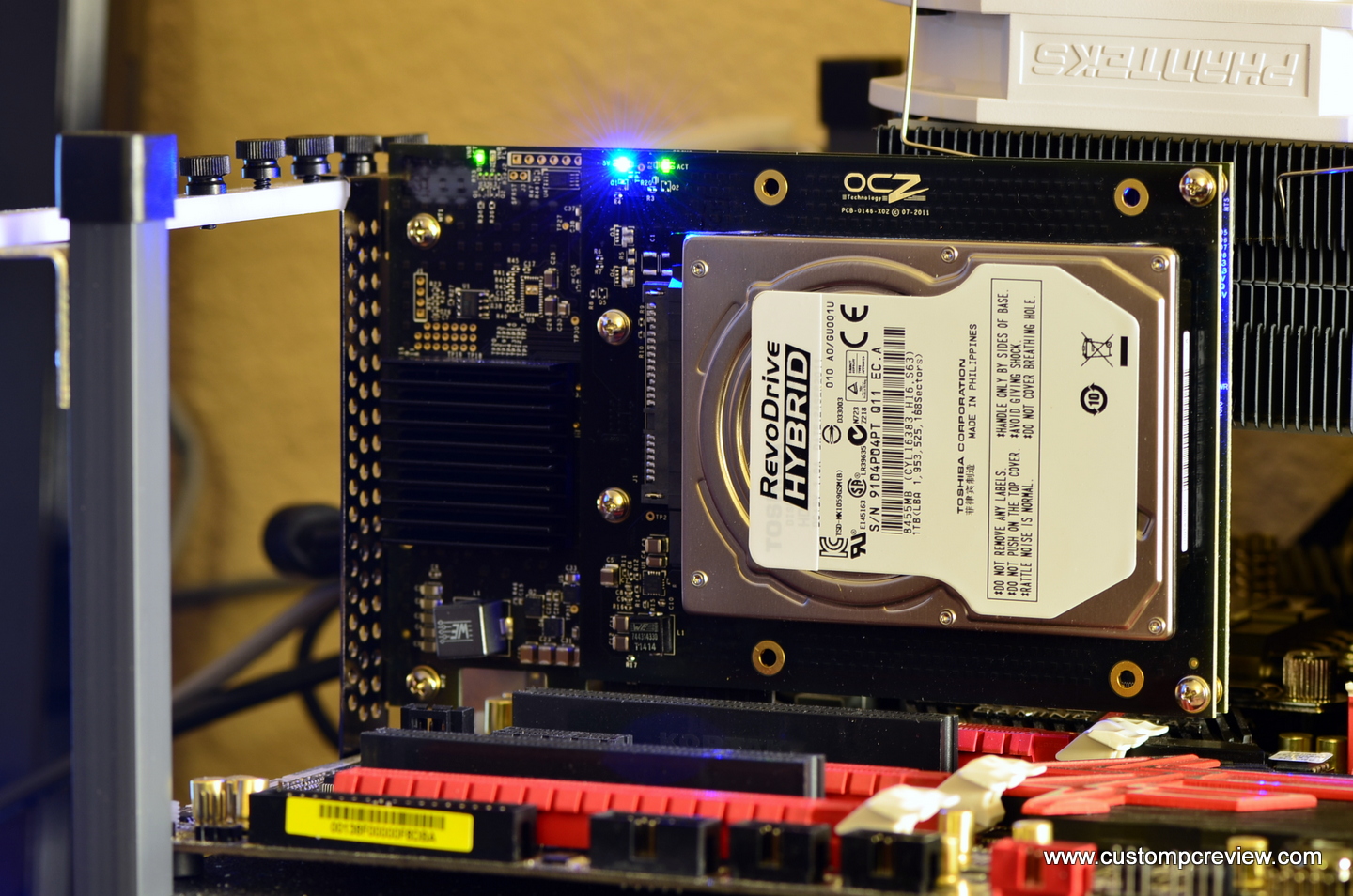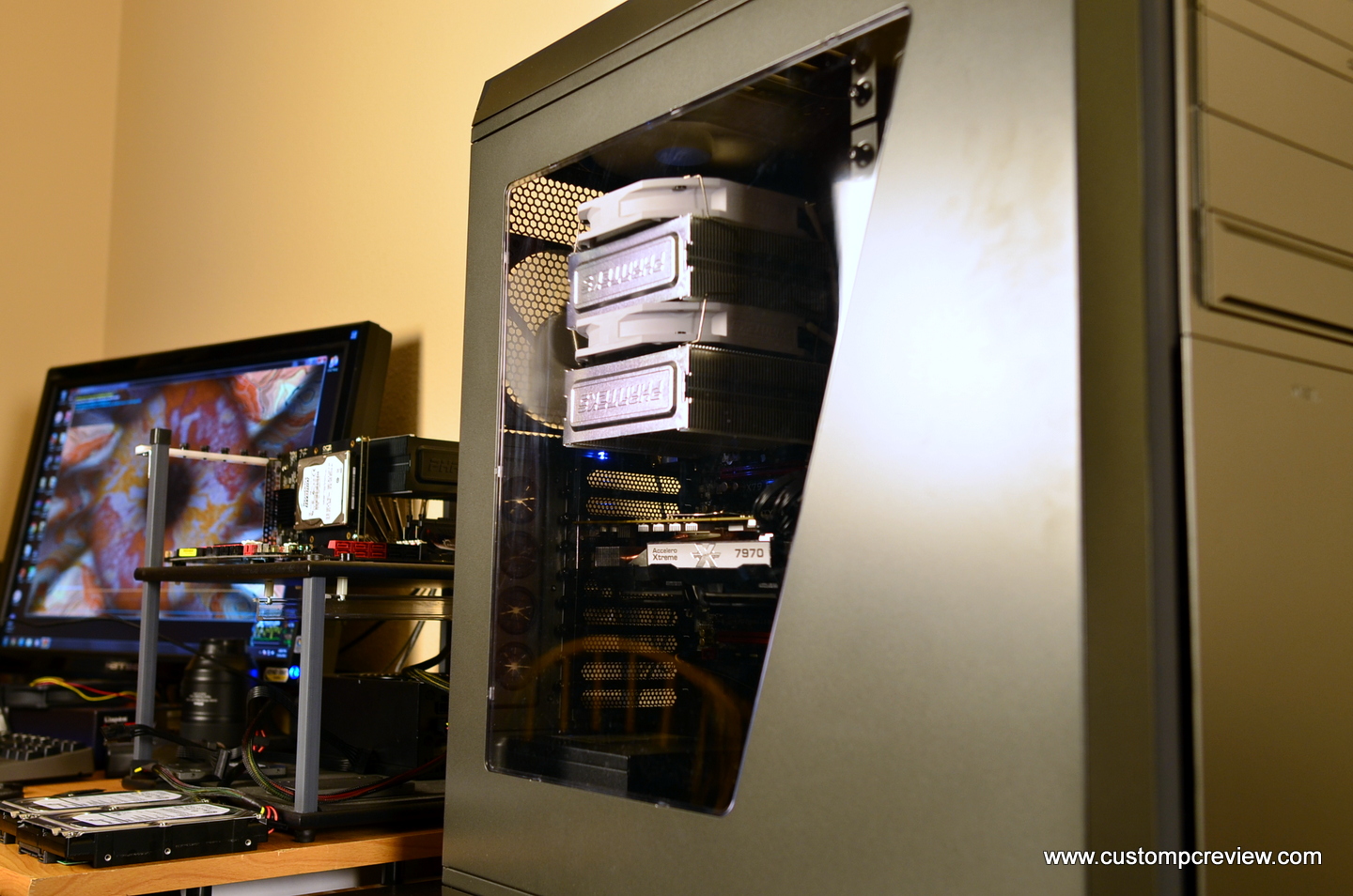[section label=1. Introduction]
ADATA’s First Marvell Based SSD
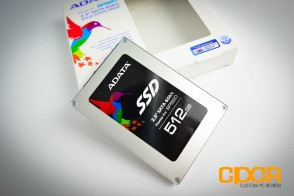 It’s been quite a while since we’ve reviewed our last ADATA SSD, and up till this point ADATA has always been a strong supporter of SandForce based products. Late last year we had the opportunity to review ADATA’s DashDrive Elite SE720 128GB external SSD which was based off the SandForce SF-2281 controller and came away impressed with the performance we were able to squeeze out of the drive through USB 3.0.
It’s been quite a while since we’ve reviewed our last ADATA SSD, and up till this point ADATA has always been a strong supporter of SandForce based products. Late last year we had the opportunity to review ADATA’s DashDrive Elite SE720 128GB external SSD which was based off the SandForce SF-2281 controller and came away impressed with the performance we were able to squeeze out of the drive through USB 3.0.
Earlier at CES this year, we also had an opportunity to visit ADATA’s product suite where they showed off some of their latest next generation SandForce SF-3700 based PCIe SSDs which are expected to be capable of up to a whopping 1,800MB/s. Despite such promising news for the company, ADATA’s current SSD lineup hasn’t really changed much for quite some time and with the launch of SF-3700 based SSDs at the mercy of SandForce, it seems like ADATA has decided to launch a Marvell based SSD in the interim to keep things from getting stale.
ADATA Premier Pro SP920 Specifications
| Manufacturer | ADATA | ADATA | ADATA | ADATA |
|---|---|---|---|---|
| Model | Premier Pro SP920 | Premier Pro SP920 | Premier Pro SP920 | Premier Pro SP920 |
| Model Number | ASP920SS3-128GM-C | ASP920SS3-256GM-C | ASP920SS3-512GM-C | ASP920SS3-1TM-C |
| Form Factor | 7mm, 2.5″ SATA | 7mm, 2.5″ SATA | 7mm, 2.5″ SATA | 7mm, 2.5″ SATA |
| Capacity | 128 GB | 256 GB | 512 GB | 1 TB |
| Controller | Marvell 88SS9189 | Marvell 88SS9189 | Marvell 88SS9189 | Marvell 88SS9189 |
| NAND | 20nm Micron Synchronous MLC | 20nm Micron Synchronous MLC | 20nm Micron Synchronous MLC | 20nm Micron Synchronous MLC |
| Sequential Reads | 560 MB/s | 560 MB/s | 560 MB/s | 560 MB/s |
| Sequential Writes | 180 MB/s | 360 MB/s | 500 MB/s | 500 MB/s |
| 4K Random Read | 80,000 IOPS | 96,000 IOPS | 98,000 IOPS | 98,000 IOPS |
| 4K Random Write | 45,000 IOPS | 80,000 IOPS | 88,000 IOPS | 88,000 IOPS |
| Interface | SATA 3 6GB/s | SATA 3 6GB/s | SATA 3 6GB/s | SATA 3 6GB/s |
| Warranty | 3 Years | 3 Years | 3 Years | 3 Years |
This then brings us to our review for today, where we will check out ADATA’s latest SSD, the ADATA Premier Pro SP920 512GB. The ADATA Premier Pro SP920 is a SATA 6Gb/s drive based off the 7mm form factor, which will allow it to be compatible with both desktops as well as many thin and light notebooks on the market. The drive uses a combination of Marvell’s latest 88SS9189 controller, an upgrade from the Marvell 88SS9187 controller, along with Micron’s latest 20nm synchronous MLC NAND. This should make the Premier Pro SP920 both high performing and power efficient.
Let’s take a closer look at the ADATA Premier Pro SP920 512GB SSD.
[section label=2. A Closer Look (Exterior)]
A Closer Look at the ADATA Premier Pro SP920 512GB
Here’s a look at the packaging for the ADATA Premier Pro SP920 512GB.
Included we get the some documentation, a 2.5″ to 3.5″ adapter with mounting screws, a 2mm riser, and the ADATA Premier Pro SP920 512GB SSD.
Like many enthusiast SSDs, ADATA’s Premier Pro SP920 is enclosed in a metal enclosure. This not only improves the appearance of the drive, but also helps dissipate heat. The top of the SSD includes the SP920’s logo while the bottom includes information about the drive.
As usual for a SATA 6Gb/s based SSD, we get a SATA 6Gb/s port along with SATA power in its usual spot. The Premier Pro SP920 is also a 7mm thick drive, so it should be compatible with most SATA based thin and light notebooks.
[section label=3. A Closer Look (Interior)]
A Closer Look at the ADATA Premier Pro SP920 512GB
The ADATA Premier Pro SP920 is held together by 8 screws – 4 for the casing and 4 for the PCB. Taking a quick look at the PCB, we can see that it’s packed to the brim with stuff. ADATA has also included thermal pads that interface the casing with the controller and DRAM for better heat dissipation.
Here’s a closer look at the Marvell 88SS9189-BLD2 controller on the Premier Pro SP920. The Marvell 88SS9189 is one of Marvell’s latest controllers and is essentially an improved version of the Marvell 88SS9187 we all know and love. While it’s not surprising that ADATA would be interested in using a Marvell controller for their latest SSD as it would give ADATA the ability to shape their own drive’s performance via their own firmware, as far as I know ADATA isn’t one of those companies with their own dedicated firmware team. This then leads me to believe that ADATA may have some sort of ODM licensing agreement with Crucial as Crucial’s new M550 SSD is the only SSD currently on the market that utilizes this new controller.
For the ADATA Premier Pro SP920 512GB, ADATA is using 16 pieces of 32GB 20nm Synchronous MLC NAND (FBGA #NW386) for a total capacity of 512GB.
For the DRAM buffer, ADATA is using one 4Gb Micron LPDDR2 (FBGA# D9RLT) chip. This gives the drive a 512MB DRAM buffer which is about 1MB DRAM buffer to 1GB total capacity. Additionally, ADATA has also included what appears to be power loss protection capacitors into the Premier Pro SP920 as well. This will allow the drive to flush any data from its volatile DRAM cache into non-volatile NAND in the event of power loss. This is an enterprise grade feature that’s generally not available on consumer grade SSDs.
[section label=4. Test Setup]
Haswell Test Bench
As of October 5, 2013, we’ve upgraded our storage testing system to a Z87/Haswell testing platform. All SSDs used for comparison here have been updated to the latest firmware as of October 2013. Performance tests from storage reviews prior to that date should not be compared to our latest reviews.
| System | CyberPowerPC Gamer Xtreme 4200 |
|---|---|
| CPU | Intel Core i7 4770K |
| Motherboard | ASUS Z87-A |
| Memory | Kingston HyperX Genesis 16GB DDR3 2133MHz |
| Graphics | Intel HD4600 Graphics |
| Storage | OCZ Vertex 4 256GB |
| Power Supply | Corsair HX650 |
| Case | HSPC High Speed Tech Station |
| Optical Drive | ASUS OEM DVD Drive |
| Operating System | Windows 8 64 bit & CentOS 6.4 |
Special thanks to CyberPowerPC, Kingston, OCZ Technology and HSPC for sponsoring our test bench!
Crystal Disk Info
ADATA Premier Pro SP920 512GB
Today we’ll be reviewing the ADATA Premier Pro SP920 512GB SATA SSD with firmware MU01. Looking at our Crystal Disk Info report, it appears that the Premier Pro SP920 is chock full of modern features such as S.M.A.R.T. monitoring, NCQ (Native Command Queueing), TRIM, and APM (Advanced Power Management). The Premier Pro SP920 also includes support for the new ultra low power DevSleep power state for notebooks that support the feature.
[section label=5. ATTO Disk Benchmark / AS SSD / Crystal Disk Mark]
ADATA Premier Pro SP920 512GB Performance
ATTO Disk Benchmark v2.46
ATTO Disk Benchmark is one of the industry’s oldest and most popular benchmarks for testing disk read/write speeds. This benchmarks allows read and write testing using predefined block sizes and gives us a good idea of read/write speeds with different sized files. Most SSD manufacturers these days prefer using this benchmark when advertising SSDs as it tests using compressible data, which tends to yield best performance.
Performance Analysis
Kicking off our testing with ATTO Disk Benchmark, the ADATA Premier Pro SP920 512GB does very well here with a maximum throughput of 556 MB/s sequential read and 511 MB/s sequential writes.
AS SSD Benchmark
AS SSD is a very commonly used benchmark used to measure SSD performance in a number of categories. Here, tests are run using incompressible data at QD1. It also outputs a final score at the conclusion of the test based off the read and write performance of the drive.
Performance Analysis
Looking at AS SSD, we can see that the Premier Pro SP920 512GB has fairly decent low queue depth performance. 4K random writes are extremely quick here coming in at 117 MB/s although the drive could use a bit more performance with 4K random reads which come in at 23 MB/s. Because of this, the ADATA Premier Pro SP920 should do very well in client/consumer applications.
Crystal Disk Mark 3.0.1 x64
Crystal Disk Mark is another popular benchmark which allows us to measure both sequential read/write speeds as well as random read/write speeds. With this benchmark, tests can be run using both random fill (incompressible data) and 0 fill (compressible data). Realistically in typical computer usage scenarios, data being transferred will consist of a mixture of both incompressible and compressible data.
Performance Analysis
Again, Crystal Disk Mark at QD 4 confirms our findings in our previous tests. 4K reads could use a bit of work, but everything else suggests that the SP920 is competitive among the top SATA SSDs on the market.
[section label=6. PC Mark 7 / PC Mark 8]
ADATA Premier Pro SP920 512GB Performance
PC Mark 7
The PC Mark 7 storage test evaluates the SSD under many different real world environments such as gaming, multimedia editing, etc. This closely represents the SSD’s performance under real world situations.
PC Mark 8
The PC Mark 8 storage test is similar to storage tests found in PC Mark 7. The PC Mark 8 storage test evaluates SSDs under many real world applications such as gaming, video editing, photo editing, etc. and is well regarded among the SSD industry.
Performance Analysis
In PC Mark 7/PC Mark 8, the ADATA Premier Pro SP920 512GB isn’t necessarily the fastest we’ve seen, but it’s very competitive considering most of the SSDs on our charts are enthusiast class products.
[section label=7. FIO – FOB]
ADATA Premier Pro SP920 512GB Performance
FIO (Flexible I/O Tester)
FIO, which stands for Flexible I/O Tester, is basically what its name says – a flexible I/O tester / I/O workload generator. Whereas all the benchmarking tools we’ve used previously are fantastic, easy to use benchmarking tools that provide a good snapshot of SSD performance, they do lack a lot of versatility, especially for more complex and in-depth operations such as custom queue depths, block sizes, test run times, etc. While the testing that follows may not pertain to typical consumer usage, they do help give us a much more in-depth look at each individual product’s strengths and weaknesses when they’re pushed to the limits.
FIO – FOB (Fresh Out of the Box) Testing
When SSDs are brand new and Fresh Out of the Box, they’re generally able to perform at or outperform their advertised speeds, but unlike traditional hard drives, performance on SSDs begin to degrade over time as they become more and more used. This is because while SSDs are new, all bits on the SSD are empty, so they can instantly be programmed with data. However, once data gets programmed in, even if it’s deleted in the filesystem the actual data will still stay programmed on the NAND itself unless some sort of garbage collection routine comes in to wipe the data. Unfortunately, in order to write new data onto “dirty” NAND, the NAND needs to go first through an erase cycle to erase the old data before a program cycle can happen to program new data, which as you may imagine takes more time than just a simple program cycle. As this only happens when writing new data onto the SSD, you’ll generally see less performance degradation on reads and more performance degradation on writes.
For our FOB testing, we run a secure erase on the SSD then run each test sans any preconditioning. This will provide us with the highest level of performance the SSD is capable of and is likely never to be seen ever again once the SSD goes into a used state.
Our testing will include 4K read testing, 4K write testing, and 4K 70/30 read/write mix testing at queue depths of 1,2,4,8,16,32,64,128,256. The reason we’ve also included 4K 70/30 read/write mix testing is simply because most real world workloads will always fall somewhere between 0% write and 100% write rather than one or the other. Since client usage is much more read heavy, we’ll be using the 70/30 read/write mix.
For general client usage, performance will fall somewhere between queue depths of 1-4 whereas servers and other enterprise applications will easily see queue depths of 32 or greater.
Performance Analysis
Fresh out of the box, the ADATA Premier Pro SP920 512GB is very strong pulling in at just a hair under 100,000 IOPS 4K random reads and 88,000 IOPS 4K random writes. 4K mixed workload performance is very good as well topping out at 80,000 IOPS at QD32. Looking good so far.
[section label=8. FIO – Steady State]
ADATA Premier Pro SP920 512GB Performance
FIO – Steady State Testing
After prolonged use of an SSD, it will reach “steady state” where performance levels off to a minimum level. The FOB state is the “best case scenario” for SSD performance while “steady state” is going to be your worst. Here, we ran the exact same set of benchmarks we just completed in the FOB state; except this time around, we’ll be preconditioning the drive by filling 100% of the drive’s LBAs with two sequential passes of 128k data followed by hammering the drive for six hours with 4K random data prior to actual testing.
Performance Analysis
Moving into steady state, once again 4K random read performance is extremely good, coming in at just a hair under the magical 100,000 IOPS mark. Unfortunately as the drive doesn’t include any over-provisioned spare area beyond the ~7% bits to bytes conversion, steady state 4K random write falls to a mere 5,000 IOPS. That said, the ADATA Premier Pro SP920 is designed as a client SSD, so steady state shouldn’t be a huge concern as long as the drive is given the opportunity to run its garbage collection routines.
[section label=”9. FIO – 4K Random Write Consistency”]
ADATA Premier Pro SP920 512GB Performance
FIO 4K Random Write Consistency Testing
Another one of the benefits of testing with FIO is the flexibility of running consistency tests, which is one of the most important metrics when considering SSDs going forward. Looking at the results of our benchmarks such as ATTO Disk Benchmark and Crystal Disk Benchmark, we can see that practically every top tier SSD is capable of saturating SATA 6Gb/s in the FOB state. However, what really differentiates these SSDs is their ability to hold a certain level of performance even after extended periods of use.
For our consistency testing, we used a fairly standard method, which includes both filling up 75% of capacity (consumer use) as well as 100% capacity(enterprise use) twice with sequential 128k data followed by the actual test itself, which is simply running 4K random writes at a queue depth of 32. By recording the IOPS every second for 2,000 seconds, we’re able to get a good look at what kind of performance can be expected when the drive is relatively new, when it’s heading towards steady state, and when it’s actually in steady state.
[tabgroup]
[/tabgroup]Performance Analysis
Looking at our 4K random write trace, we can see that the ADATA Premier Pro SP920 512GB is actually very consistent in performance at 100% fill although it could use a bit more in total performance. At 75% fill, the drive regains a lot of performance although consistency seems to go out the window.
Additionally, it’s interesting to see that the ADATA Premier Pro SP920’s 4K random write trace is extremely similar to our trace for the Crucial M500. Because of this, it’s more than likely that the ADATA Premier Pro SP920 may actually be a rebadged version of the newer Crucial M550 that was released not too long ago. ADATA has yet to tell us if the Premier Pro SP920 is in fact a Crucial M550; however, SSD garbage collection routines are proprietary to every company and based on our data here, it’s more than likely that ADATA has some sort of licensing deal with Crucial/Micron for the Premier Pro SP920.
[section label=”10. FIO – 4K Random Write Latency”]
ADATA Premier Pro SP920 512GB Performance
FIO 4K Random Write Latency Testing
Another metric that’s becoming increasingly important in SSDs is its ability to keep latency low despite being subjected to a heavy workload. Even if a SSD were capable of ultra high and ultra consistent IOPS performance, if latency were high, users would still feel that the drive is slow. Ideally, SATA SSDs should always be capable of latencies under 50ms, even during heavy workloads.
For latency testing, we’ll be using the exact same testing parameters as IOPS consistency testing, except instead of recording IOPS every second, we’ll be recording latency.
[tabgroup]
[/tabgroup]Performance Analysis
Looking at our 4K random write latency trace, the ADATA Premier Pro SP920 does very well, keeping itself under 50ms throughout our testing. That said, while latency is acceptable, we would’ve liked to see more consistent latencies if possible, similar to what we see with the SanDisk Extreme II or preferably the OCZ Vertex 460. Again, note the similarities between the ADATA Premier Pro SP920 and the Crucial M500.
[section label=”11. FIO – 128K Random Write”]
ADATA Premier Pro SP920 512GB Performance
FIO 128K Random Write Consistency Testing
In addition to testing 4K random write consistency, we’ll also begin to test for 128K random write consistency to see how well a SSD is able to hold itself to a level of performance when getting hammered with larger file transfers.
For 128K random write consistency testing, we won’t be preconditioning the drive with two sequential passes of 128K data like in our 4K random write consistency testing since 128K data can easily fill up the drive well within our 2,000 second run.
[tabgroup]
[/tabgroup]Performance Analysis
Being a consumer oriented SSD, I didn’t expect much out of the Premier Pro SP920 in our 128K random write testing and it definitely isn’t the highest performing product out there. After reaching steady state at 100% fill, the drive’s performance freefalls to a paltry low of 17MB/s. At 75% fill on the other hand, the situation is much better with the drive transferring somewhere between 17MB/s and 250MB/s although performance is inconsistent at best.
[section label=12. Power Consumption]
ADATA Premier Pro SP920 512GB Power Consumption
Previously, our power consumption analysis only tested for idle and maximum load power consumption, but we felt that this was a bad way to accurately measure power consumption. The reason for this is because SSDs tend to be bursty while in operation and will spike in power usage, but only for very short periods of time. As such, many of our SSDs appeared to have even higher power consumption than traditional hard drives, which is untrue.
In order to improve our reading of power consumption, our solution was to run a test closer to the real-world and record a trace on the power consumption during testing. Since PC Mark 7 has been recognized by the industry as a fantastic real-world benchmark, we’ll be running our power consumption test while running the benchmark.
All tests below are measured by tapping our calibrated B&K Precision 5491B Bench Multimeter tapped directly into the 5v line running from the power supply to the drive. All testing here is conducted with “HIPM (Host Initiated Power Management)/DIPM (Device Initiated Power Management)” enabled and “AHCI Link Power Management – Adaptive” set to 0 milliseconds for maximum power efficiency.
[tabgroup]
[/tabgroup]Performance Analysis
Power consumption has been improved on the newer Marvell based SSDs and the ADATA Premier Pro SP920 512GB is fairly decent. At idle, which is where most client SSDs spend their time, the Premier Pro SP920 drew a mere 0.06w. This is only slightly higher than what we found with the Samsung’s 840 series SSDs which are very well known to have extremely low power draw.
Power consumption during a run of PC Mark 7’s secondary storage suite however, was slightly higher than expected and the Premier Pro SP920 yielded and average of 0.84w. This is due to the fact that the ADATA Premier Pro SP920 seems to go into some sort of medium power draw garbage collection mode immediately after the test, which draws more power, but helps preserve performance.
[section label=13. Conclusion]
ADATA Premier Pro SP920 512GB Conclusions
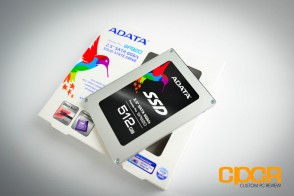 Alright, so with testing out of the way I’m pretty convinced that what we have here is possibly a Crucial/Micron manufactured drive rebadged as an ADATA product. Based off of the fact that we’re looking at a similar performance profile, similar garbage collection routines, identical firmware nomenclature, identical PCB design, identical component choice, and similar case design, the ADATA Premier Pro SP920 is most likely a Crucial M550 in disguise. Since we haven’t had the opportunity to thoroughly test the Crucial M550 just yet (available here) and we haven’t received confirmation from ADATA regarding if we’re dealing with a 100% identical drive to the Crucial M550, let’s continue with the assumption that the Premier Pro SP920 *may be* an in-house product.
Alright, so with testing out of the way I’m pretty convinced that what we have here is possibly a Crucial/Micron manufactured drive rebadged as an ADATA product. Based off of the fact that we’re looking at a similar performance profile, similar garbage collection routines, identical firmware nomenclature, identical PCB design, identical component choice, and similar case design, the ADATA Premier Pro SP920 is most likely a Crucial M550 in disguise. Since we haven’t had the opportunity to thoroughly test the Crucial M550 just yet (available here) and we haven’t received confirmation from ADATA regarding if we’re dealing with a 100% identical drive to the Crucial M550, let’s continue with the assumption that the Premier Pro SP920 *may be* an in-house product.
Performance on the Premier Pro SP920 was overall quite good (although not groundbreaking) which is expected. ADATA’s Premier Pro SP920 is definitely more of a professional/business oriented product given the type of features onboard although there’s really no reason why gamers couldn’t pick one up to supercharge loading times. Internally, the Premier Pro SP920 has Micron’s latest NAND combined with Marvell’s latest controller so you can’t really go wrong here. While performance is slightly slower than some of the high end enthusiast SSDs, the ADATA Premier Pro SP920 does come with some business oriented features such as power loss protection which can be crucial for some users.
| Manufacturer | ADATA | ADATA | ADATA | ADATA |
|---|---|---|---|---|
| Model | Premier Pro SP920 | Premier Pro SP920 | Premier Pro SP920 | Premier Pro SP920 |
| Capacity | 128 GB | 256 GB | 512 GB | 1 TB |
| MSRP | $89.99 | $159.99 | $334.99 | $529.99 |
| Price/GB | ~$0.70 | ~$0.62 | ~$0.65 | ~$0.53 |
| Check Price | Click Here | Click Here | Click Here | Click Here |
The ADATA Premier Pro SP920 512GB is expected to MSRP at $334.99 when it becomes available within the next couple weeks, which comes out to ~$0.65/GB. Considering the fact we’re getting MLC NAND, power loss protection, and great performance, it’s not a bad deal. The biggest competitor is probably going to be the Samsung 840 EVO and while the Samsung 840 EVO can generally be found online for ~$0.54/GB, it does use lower endurance TLC NAND and doesn’t have the benefit of power loss protection – something that may be mandatory for mission critical business deployments. Crucial’s M550, which is probably the same drive as the Premier Pro SP920 seems to be retailing at around the $0.65/GB range, but ADATA does provide a bit more value add with their drive by bundling the Acronis True Image 2013 cloning software which in itself is a $50 value. While it’s a solid value add, personally I think what would really set ADATA apart is an extended 5 year warranty for the Premier Pro SP920, but the additional sales is may not be worth the cost.
Overall, the ADATA Premier Pro SP920 512GB is a fantastic drive with plenty of features, great performance, and a low price to boot. Business and workstation users who need features such as power loss protection, and aren’t interested in paying enterprise class SSD prices should definitely check it out.
Sample provided by: ADATA
Availability: Coming Soon

